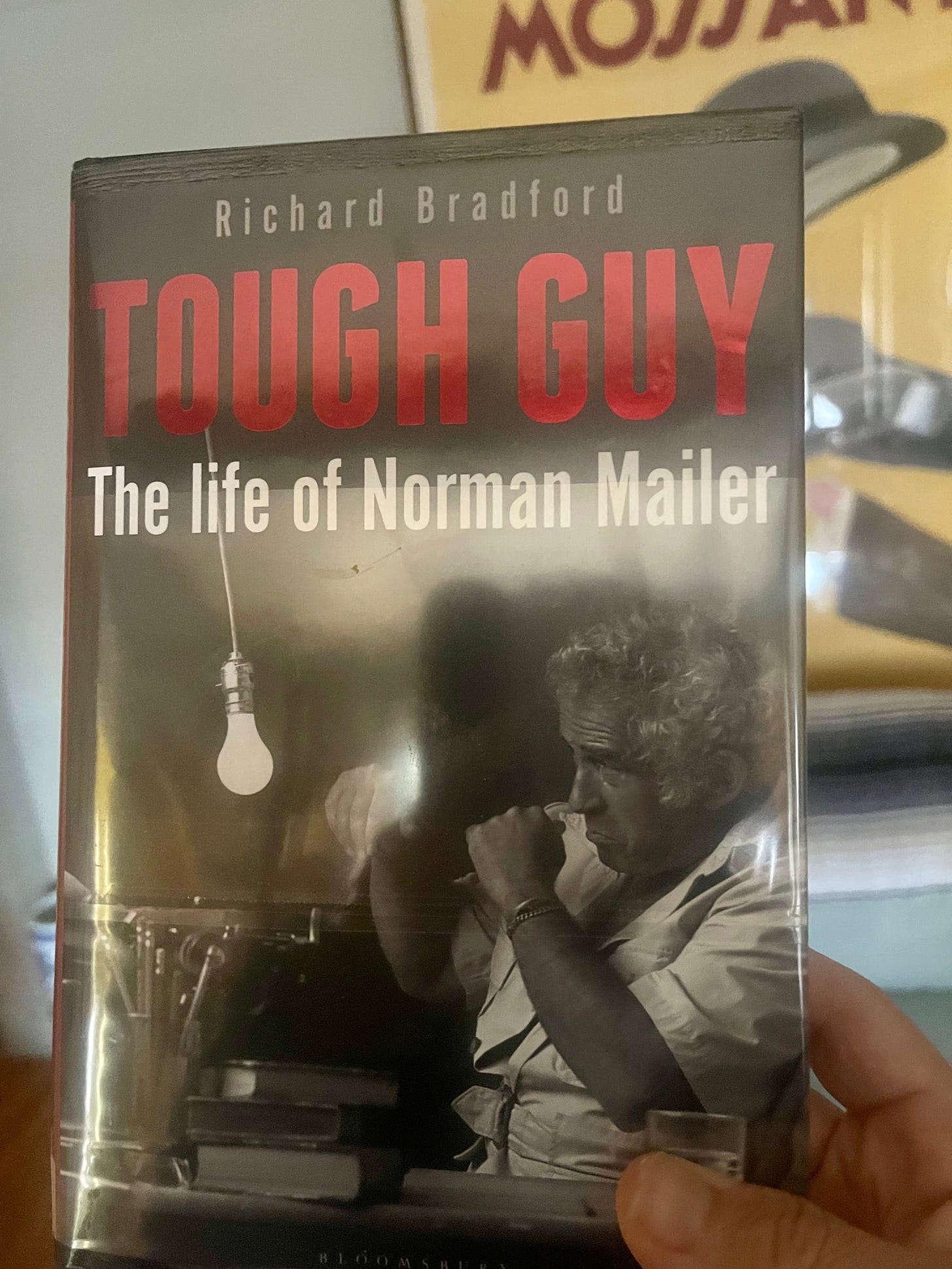In 1948, Norman Mailer burst onto the literary scene with “The Naked and the Dead,” regarded as an unsparing account of GI’s serving in World War II. Twenty years later, his “Armies of the Night,” based on the 1967 March on the Pentagon, won the Pulitzer Prize for non-fiction. Eleven years after that, “The Executioners’s Song” was awarded the Pulitzer Prize for fiction.
Small wonder Norman Mailer was the idol of so many. So it’s especially painful to read Richard Bradford’s “Tough Guy: The Life of Norman Mailer,” a biography that details his physical abuse of women, his homophobia, and his belief in wacko conspiracy theories.
Born to a lower-middle-class Brooklyn family, Norman was smart enough to get into MIT, but instead chose Harvard where there was a chance he’d meet more women. After his first marriage foundered, he met and married the fiery Adele Morales, whom he stabbed and nearly killed at one of their drunken NYC bacchanals.
Later with Dan Wolf, Norman founded the Village Voice but soon left over money and editorial disputes. He would become a performance artist before there was such a thing, inserting himself into anti-Vietnam War demonstrations and delivering wild, often incoherent political speeches. Norman also ran for mayor of New York on a platform of making the city the 51st State. He came in fourth in a field of six, and was supported by such luminaries as feminist Gloria Steinem, whom he subsequently slept with.
While writing novels, as well as articles for Esquire and other publications, Norman revealed his conspiracy theorist side. He believed, for instance, that Marilyn Monroe was killed because of her liaisons with the Kennedys and that Lee Harvey Oswald didn’t act alone in JFK’s assassination. Meanwhile, he suffered from Newt Gingrich Syndrome: as soon as he married one woman and fathered a child or two with her, he cheated on that wife and moved onto the next. As an example, Norman married Carol Stevens, a jazz singer on November 7, 1980, and divorced her a day later, thereby legitimating their daughter Maggie, born nine years earlier.
Norman was a brilliant poser, acting as a Hemingway-esque tough guy, often polishing off a bottle of bourbon by himself and picking fights fights with Jose Torres, Gore Vidal, nd Pete Hamill. After a series of bad books in his later years, including a first-person novel which he narrated as Jesus Christ, he died of renal failure in 2007.
Dylan Thomas wrote, “Do not go gentle into that good night/Rage, rage against the dying of the light.” Norman Mailer lived by that credo every day. For his genius, we should be grateful. For everything else, not so much.




I loathed him after his efforts freed a troubled writer just because Mailer thought he was talented. Said writer went on to kill an innocent bartender. If Mailer hadn't interceded in securing his release a human life would have been saved. To me, Mailer was a "morceau de merde". Voila.